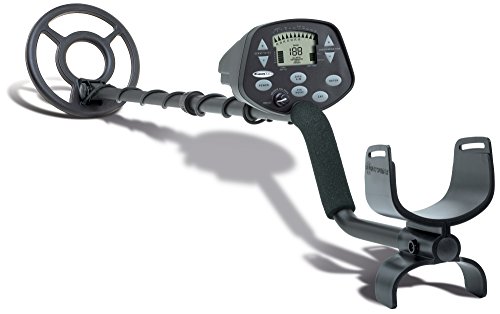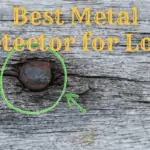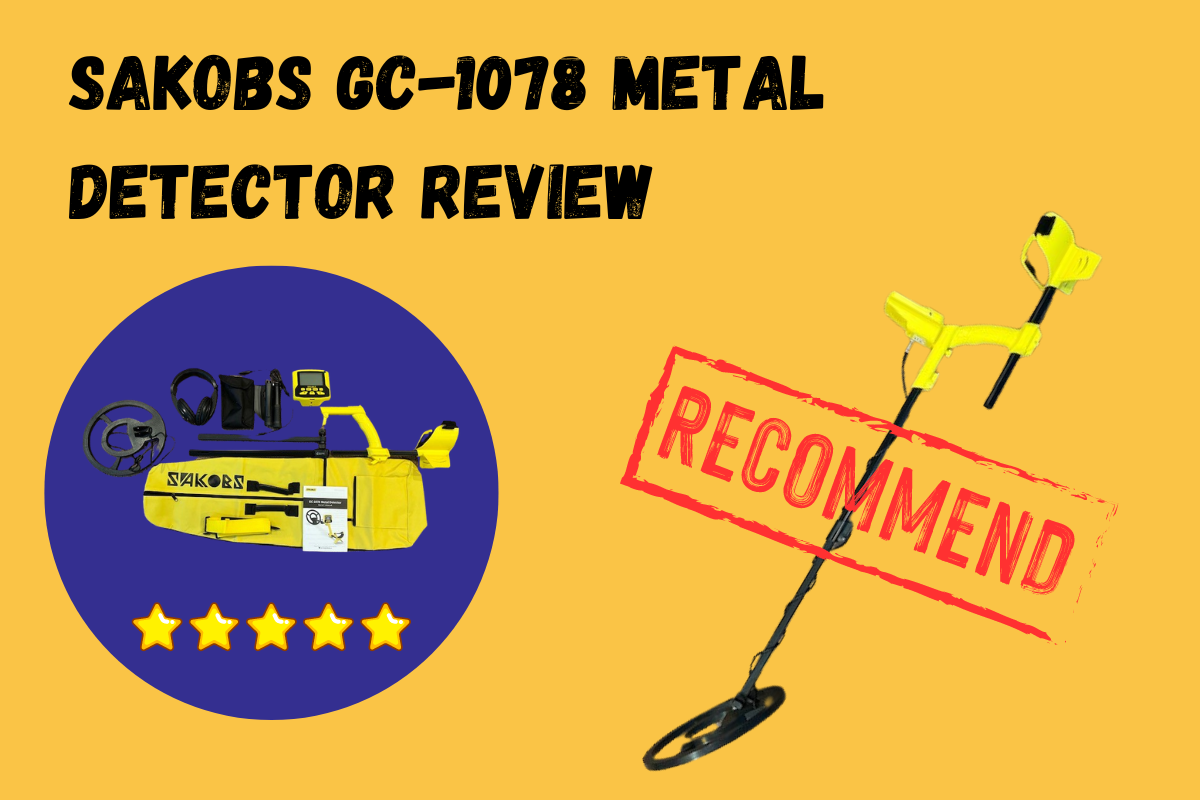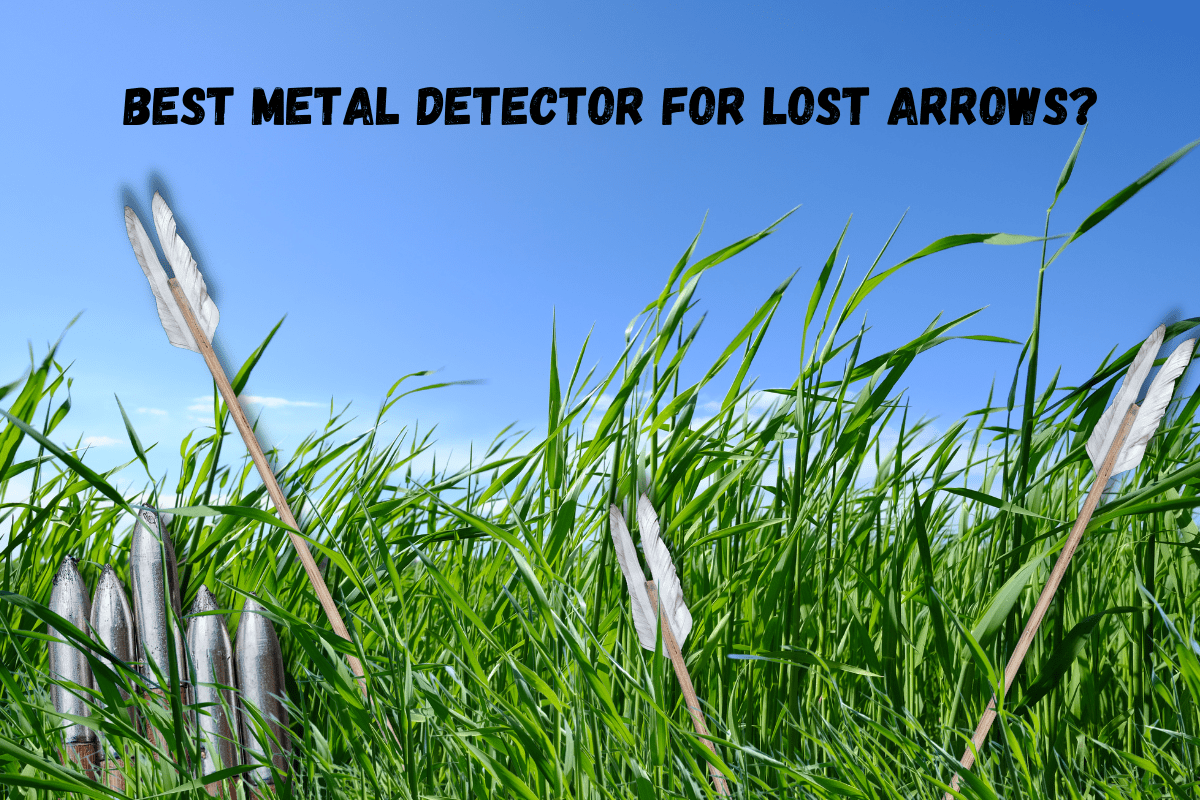If you’re like most people, you probably think of metal detectors as something that is only used to find lost coins or jewelry. However, did you know that metal detectors can also be used to find property pins?
Property pins are survey markers that are placed within the ground by property owners and surveyors. They are made of metal and are used to identify the edges of land ownership. Property pins can be found on almost every property (with exceptions), and while they are used to help identify the property boundaries, they aren’t always trustworthy.
In this blog post, we will address some of the most frequently asked questions about property pins that may help you decide on which one to purchase for your own use.
At a Glance – Top 3 Metal Detectors for Property Pins
Metal Detecting for Property Pins: What You Should Know
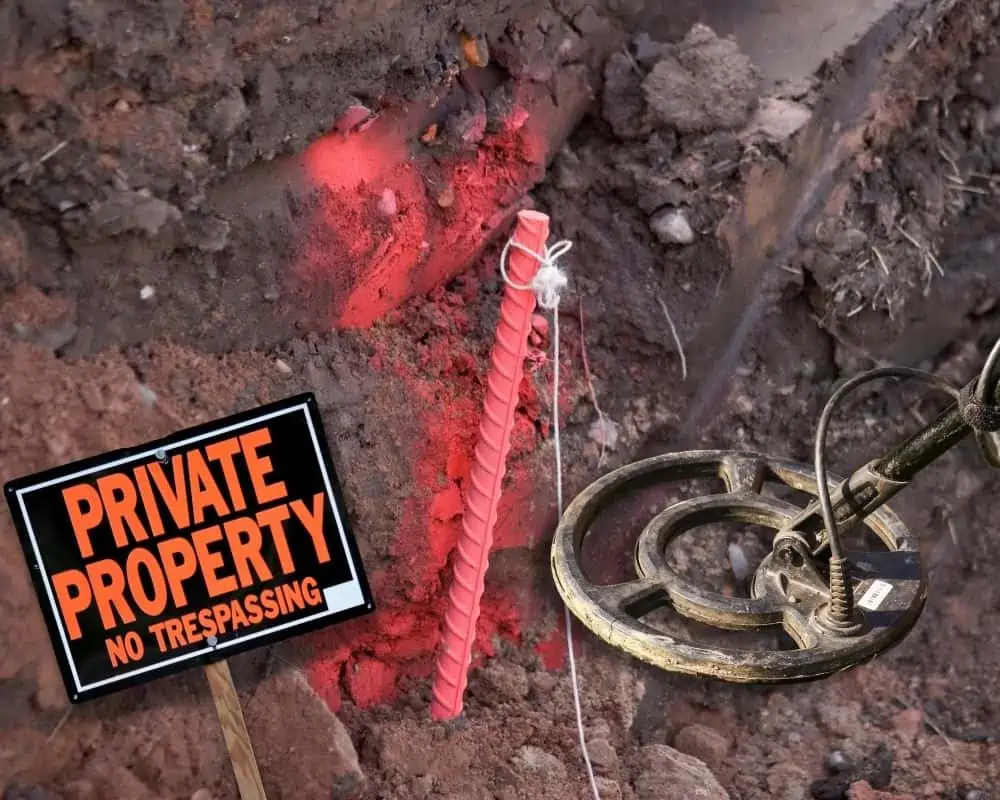
If you’re still reading about property pins then you’re obviously in need of finding them, whether for your own backyard, or someone else’s. Maybe you work as a surveyor or property developer and need to find property pins on a regular basis.
Whatever the case may be, you’ll need to have the proper equipment for the job.
But first, if you want to learn more about how to go about finding property lines and pins for that matter, be sure to read our article detailing the options you have. If you’ve already made your decision and just need the right equipment, keep reading!
You should know that there are two main types of devices that can be used for finding property pins: metal detectors and magnetic locators.
In this article, we will mainly be focusing on metal detectors. But if you are a professional in need of some everyday use locating technology, then be sure to check out our recommended magnetic locator below.
So, let’s just jump right in and get comfortable with some of the more popular questions about property pins you may think of.
What Do Property Pins Look Like?
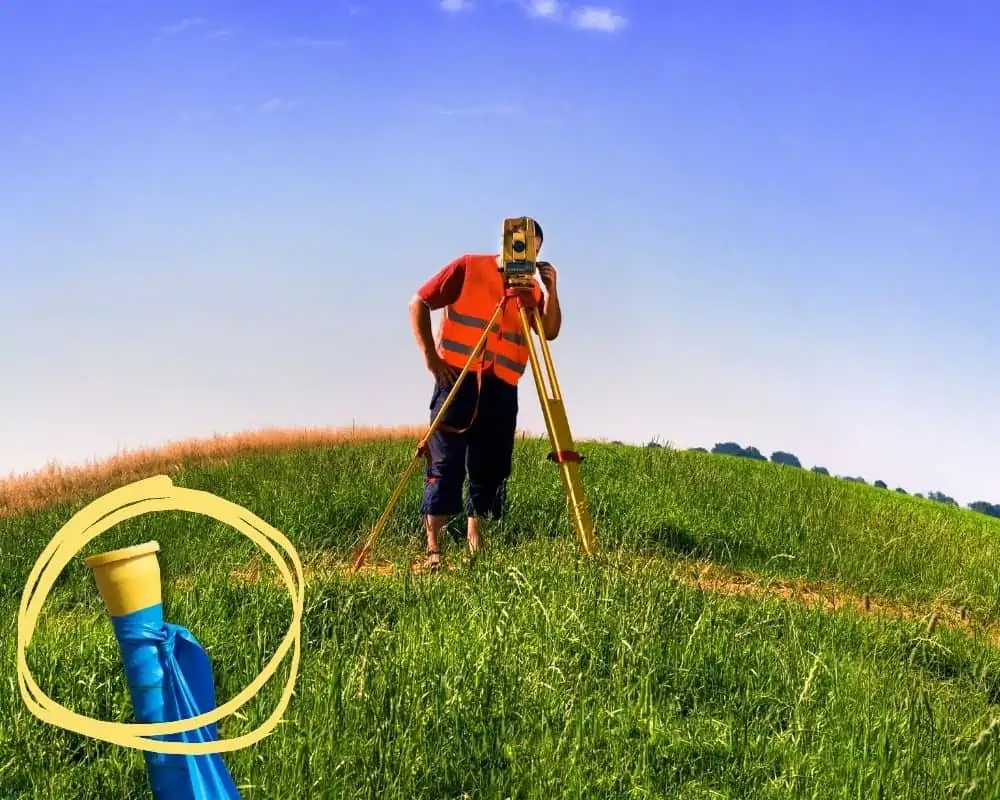
As we briefly mentioned before, property pins are made of metal. Specifically, a property pin is made of iron. However, sometimes property pins are manufactured out of other metals like carbon steel, which is used for crafting solid rebar.
Most property pins are about 2 or 3 feet long with a plastic cap on one end. The other end can sometimes be sharpened so it can be driven into the ground easily.
The diameter of a property pin is typically going to be about ¼ of an inch, but they can also range from being as thin as ⅛th of an inch or even thicker than ½ an inch in some cases.
How Many Property Pins Are Usually Found on a Property?
This is a difficult question to answer because it all depends on the property itself. Some properties only have four property pins while others may have dozens of them placed around the perimeter.
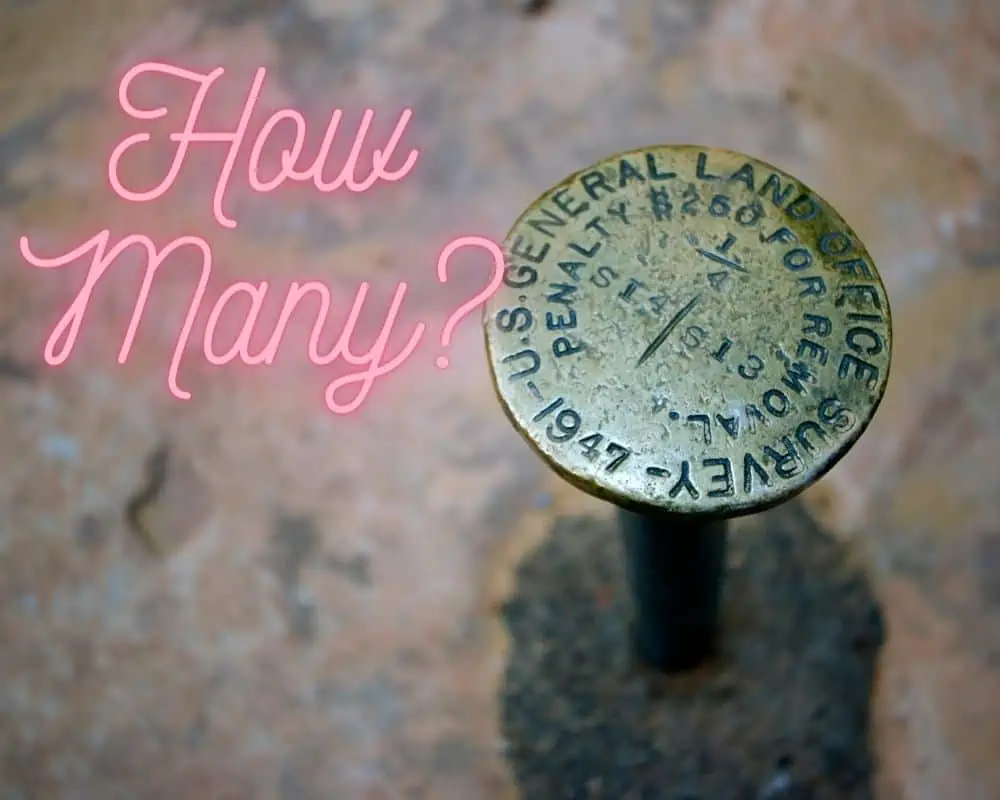
The size of the property and its boundaries will usually dictate how many property pins are needed. For example, a small residential lot may only need four property pins (one at each corner), while a large commercial property may need dozens of property pins to mark all its boundaries.
If a property line were to change in angle, then more property pins would likely need to be added. This happens when a property owner wants to add or remove a portion of their land. In this case, a surveyor would come out and place new property pins to mark the revised property boundaries.
Do All Properties Have Survey Pins?
No, not all properties have property pins. If you have a platted lot, then there is a good chance that property pins have been placed on your property.

A platted lot is a property that has been surveyed and officially mapped out by a registered land surveyor. The property boundaries are typically marked by property pins or some other type of physical marker.
If you live on an unplatted lot, then there is a chance that your property does not have any property pins.
Are Property Pins Accurate?
Yes and no. When property pins are initially placed, they can be considered fairly accurate. They are placed by registered land surveyors and they use high-tech equipment to make sure that the property pins are placed in the correct location.

However, over time property pins can become moved or even removed completely. This can happen for a variety of reasons, such as construction work, landscaping projects, or simply because the property owner decides to remove them.
If you’re asking yourself how to find metal property stakes on an older property or where there have been some recent changes done to the property, keep in mind that the accuracy of the property pins isn’t nearly as reliable.
How Deep Are Property Pins in the Ground?
This is another difficult question to answer because it all depends on the property and when the property pins were originally placed.
Typically, property pins are going to be driven just a few inches into the ground. Possible anywhere between 1 to 6 inches, depending on the soil and method of insertion. But as time passes, property pins can become more deeply buried.

On the contrary, property pins can also become less buried over time. This is usually the result of erosion, where the property pin slowly becomes exposed as the soil around it washes away. Or perhaps something manmade caused the disturbance of the surrounding soil, such as varying property alterations.
In any case, the depth of property pins can vary greatly and it’s not always easy to determine how deep they are without actually digging them up.
Is There an App to Find Property Pins?
Technically, yes there is an app to find property pins. However, the effectiveness of these apps is up for debate.
For instance, there is an app we discussed in our property lines article called LandGlide that is used to locate property lines via GPS. If the property pins haven’t been moved, then you may have some luck in finding them by tracing the boundaries mapped out on the app.
Another possible way to find property pins is by use of a metal detecting app. We tried out one of these apps and were pleasantly surprised with the results.
However, if you’re talking about waving your phone around just above the ground and expecting it to pick up the iron pins as much as 6 inches deep (at least!), I wouldn’t hold my breath.
What Is a Magnetic Locator?

A magnetic locator is a tool that can be used to find property pins, as well as other metal objects that may be buried in the ground at greater depths.
Magnetic locators work by detecting the magnetic field of metals underground. This is different from metal detectors, which use electromagnetic induction to detect metallic objects.
The main advantage of using a magnetic locator is that it can be used to detect metals that are much deeper than an average metal detector might be capable of.
For instance, the Garrett AT Pro Metal Detector can only detect metals up to about 10 inches deep, while the CST/Berger 19-555 MT101 Magna-Trak Locator can detect metals up to about 20 inches deep!
In fact, some regular users of magnetic locators have been known to find survey pins as deep as 2 to 3 feet. It all depends on the strength of the magnetic field and how deep the metal object is buried, the condition of the soil, and the strength of the magnetic field.
If a magnetic locator sounds more like what you are looking for, we suggest you look more closely at the Magna-Trak as we consider it one of the better deals on the market.
If you need a device to locate property pins and large metal objects on a more consistent basis at greater depths, or if you work for or own a land surveyor company, a metal detector may not be enough for you. A magnetic locator is an ideal alternative in these situations. We recommend checking out the Magna-Trak Locator. This professional and affordable tool makes it easy to detect ferromagnetic items other than just property pins, such as cast-iron pipes, manhole covers, and large tanks.
Weighing only 4.69 pounds, this device is easy to transport and features an on/off switch, volume control, and sensitivity adjustment. The Magna-Trak also comes with a soft case for easy transport and a one-year limited warranty. While you will pay a little bit more than the other metal detectors we recommended, as far as magnetic locators go, this one is a steal!
But let’s get to the good stuff. If you’re like most people who are looking for a simple and less expensive way to find your property pins, here are our top 3.
Best Metal Detector for Property Pins
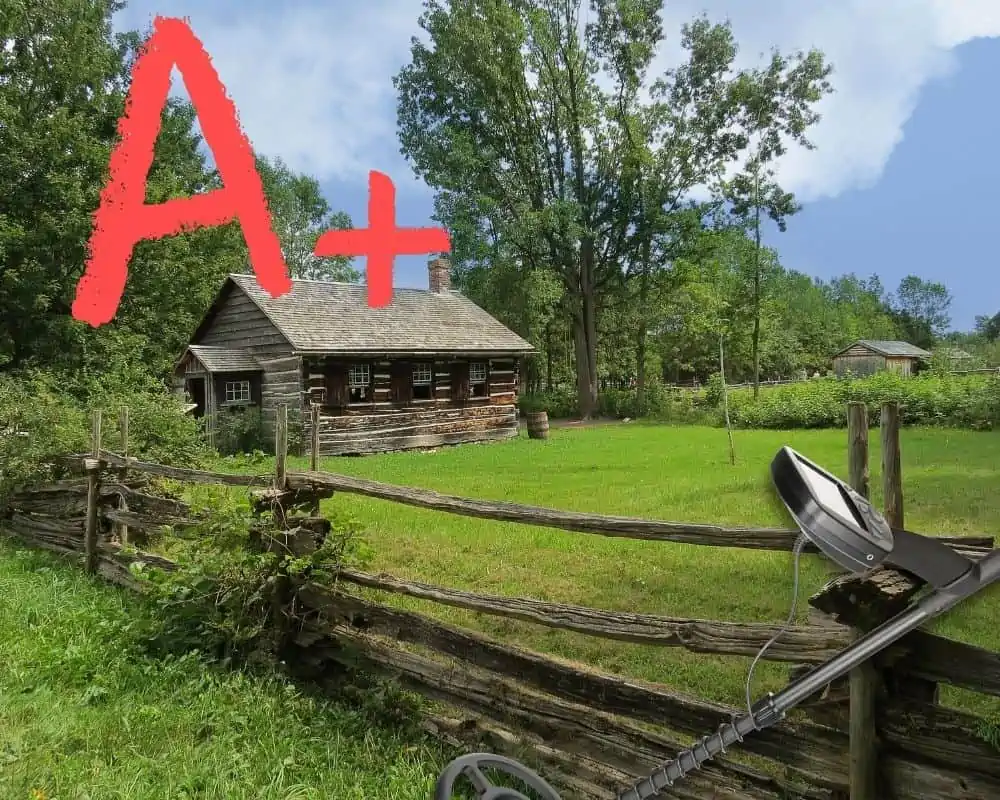
Bounty Hunter Discovery 3300
Looking for a precise metal detector that can accurately locate targets at depth? Look no further than the Bounty Hunter Discovery 3300. With its microprocessor-controlled discrimination and one-touch pinpointing, this deep-seeking detector is ideal for anyone looking to up their metal detecting game, or in this case, find those elusive property pins. Featuring 5 modes of operation, including Motion All-Metal, Progressive Discrimination, Notch, and Pinpoint, the Discovery 3300 has everything you need to find any kind of metal below the surface. And with its digital 11-segment probable target ID, you can identify a wide range of targets with ease.
This deep-seeking metal detector is a precision device that is perfect for finding specific targets at depth. With its manual ground balance and one-touch pinpoint feature, this detector is able to neutralize the response to mineral content in the ground, making it extremely accurate. Whether you are a beginner or an experienced treasure hunter, the Discovery 3300 will help you find every single boundary marker or even your next big score!
The Bounty Hunter Discovery 3300 is lightweight and easy to use, weighing only 2.5 pounds, and has an easy-to-follow manual. It features an 8-inch waterproof search coil and operates on two 9V alkaline batteries. With a 5-year warranty, you can be confident in the quality of this metal detector. If you’re looking for depth in a metal detector, this is the one for you. The Discovery 3300 can detect metal the size of coins (or property pins) up to 11 inches deep, but it is also sensitive enough to find the smallest slivers of metal with ease, well beyond 6 inches below the surface. In addition, larger objects can be detected as deep as 4 feet! So, whether you're looking for property pins or adventuring out to discover some lost treasure, the Bounty Hunter Discovery 3300 is the ultimate metal detector for the job!
This is a great product for anyone looking to get into metal detecting. It’s loaded with some advanced features that come in handy. But there are a few things to keep in mind. Firstly, it doesn’t come with headphones, so you’ll need to buy your own. It’s not really a big deal but other models provide them in a package.
Secondly, the pinpointer is a great feature but you may find that you have to keep hitting the button to really zero in on your target. And finally, the batteries are not rechargeable, so you’ll need to buy new ones when they run out unless you buy some rechargeable batteries from the get-go.
- Deeper depth detection
- 5 modes of operation
- Accurate target ID
- 5-year warranty
- No headphones included
- Pinpoint function requires practice
- Slightly more expensive for only infrequent use
The Verdict: The Bounty Hunter Discovery 3300 is an amazing metal detector with enough power and extra tools to make sure you find what you’re looking for. If you think your property pins got moved around or sunk more with the passage of time, you can feel confident that the BH Discovery 3300 is going to find them for you.
While it is very affordable, you can certainly find a better deal if you’re only looking to use a metal detector once and a while. But for more consistent use, you won’t find much better for the price.
Fisher F22
The Fisher F22 metal detector is an ideal choice for anyone who wants to start exploring their backyard in search of property pins and maybe launch a new outdoor hobby. This all-purpose device can detect buried rebar, jewelry, or coins on land as well as shallow water depths up to 8 inches below surface level. With its padded handle and its super lightweight frame weighing only 3 pounds, you won't have any trouble holding onto this powerful little machine while using it for hours on end!!
This runner-up device is a great beginner's metal detector and can be an excellent tool for any level of user. With its adjustable shaft, any user can set the dimensions to their liking with the minimum length setting at 39 inches and the max set to 50 inches. It comes with a number of highly sought-after features like sensitivity and notch controls, so finding targets will be as simple as possible.
Metal detectors are a great way to find the property pins in your yard! The F22 metal detector by Fisher is an accurate and reliable device that will help you find what's hidden beneath the surface. With its waterproof construction, this baby can go anywhere - even right in your backyard or down by the beach if the discovery of the unknown interests you. And if you're wondering if this metal detector isn't enough power to find what you need, don't worry. Among the abundant built-in features, this baby comes with a 4-tone audio ID system which helps enhance any discrepancy found within targets so they're not slipping through unnoticed.
The Fisher F22 metal detector is a great choice for beginners and an excellent option for locating property pins. However, it’s not the best choice for saltwater hunting if you decide to expand your search area, as it tends to lose signal in those conditions.
Additionally, the pinpointer feature isn’t as reliable as on other models, so you may have to do some extra digging to find your prize. But despite these drawbacks, the F22 is still a great option for anyone looking to get into the metal detecting hobby.
- 8-inch depth detection
- Great battery life
- Works in all terrains
- Well balanced design
- Not ideal in saltwater
- Difficult to adjust the armrest at times
- Pinpointer can be finicky
The Verdict: If you’re looking to get started in metal detecting or really only need one for finding property pins, the Fisher F22 will do everything you need it to do, and more. It’s an affordable device that doesn’t go cheap on advanced features. While the depth isn’t as far-reaching as the Bounty Hunter model, it should do just fine in most situations.
Garrett ACE 300
Introducing the Garrett ACE 300 metal detector! This powerful and easy-to-use detector can detect objects up to 8 inches deep, making it perfect for finding property pins and other precious metals. Plus, it comes with three FREE accessories: headphones, an environmental coverup, and a 7" x 10" search coil cover, easily winning the status of Best Package. Speaking of the search coil, this search coil is submersible and in fact, the entire ACE 300 is waterproof, allowing you to venture out into any conditions.
This versatile device is perfect for both beginners and experienced users alike. With 5 detection modes, you can customize your search to suit your needs. The digital target ID feature provides quick and accurate information on what you're detecting, while the iron discrimination segments help eliminate unwanted items. But you won’t need to worry about that if your target is property pins. And if you're looking for the property markers or anything specific, the pinpoint function will help you zero in on your target.
The Garrett ACE 300 is the perfect metal detector for those looking to expand on the metal detecting hobby, not just for finding property pins. Sturdy and robust, this metal detector only weighs 2.8 pounds, making it easily transportable. With 30 hours of battery use, you'll be able to enjoy Metal Detecting for hours on end. The ACE 300 is slightly smaller than that of the Fisher F22, making it more comfortable to handle for those users of smaller frames.
This detector is designed for the beginner as well as the experienced detectorist. It offers preset ground balance and a variety of features to make your detecting experience more enjoyable. However, there are some downfalls.
First, it does not do well in saltwater environments, and it also lacks a computerized ground balance, making it impossible for more experienced users to manually adjust when ground balancing.
Second, it is not as durable as other detectors on the market and can be quite cumbersome to carry around as you can’t simply fold it. Finally, there is a bit of a learning curve when using this machine so beginners may want to steer clear at first unless they are really looking to dive into the world of metal detecting.
Despite these flaws, the Garrett ACE 300 is still an excellent metal detector and more than capable of finding property pins.
- 8-inch depth detection
- 3 free accessories
- Excellent battery life
- Pinpoint function
- No computerized or manual ground balance
- Does not fold (must split into 3 pieces)
- Not great in saltwater
The Verdict: If you’re willing to spend a little extra money for a metal detector that you want to venture out and explore, the Garrett ACE 300 is a premium detector at a fair price. If you don’t intend on using it more than a few times, there are definitely better options for you.
But with all the extra accessories and features this device comes with, it’s hard not to covet this excellent entry/mid-level metal detector.
Choosing the Right Metal Detector for Finding Property Pins

If you’re serious about finding property pins, then you’re going to need a good metal detector. Even if you just need it sparingly but are open to more extracurricular activities with your new device, quality matters. But with all the different models and brands out there, it can be tough to decide which one is right for you.
Here are a few things to keep in mind when choosing a metal detector for property pins:
How Deep Do You Need to Detect?
As we mentioned before, property pins can be buried anywhere from a few inches to a few feet deep. If you’re only looking for property pins that are close to the surface, then just about any metal detector will do the job.
However, if you’re looking for property pins that are buried deeper, then you’re going to need a metal detector that can detect at greater depths.
How Old Is the Property?

The age of the property can also affect how deep the property pins are buried. On newer properties, the property pins are usually only buried a few inches deep. However, on older properties, the property pins may be buried much deeper.
This is because, over time, the soil around the property pin can erode and cause the property pin to sink deeper into the ground.
Knowing the age of the property or the last time it was surveyed will help you narrow down your search.
What Are the Ground Conditions Like Where You’ll Be Searching?
The ground conditions where you’ll be searching can also affect how deep the property pins are buried. If you’re searching in an area with sandy soil, the property pins will usually be close to the surface. However, if you’re searching in an area with clay soil, the property pins may be buried much deeper.
Furthermore, if the area is high in mineralization, then you’ll need to think about getting a metal detector that is capable of adjusting for the false signals and possible irregular chirping you may experience.
Do You Need a Waterproof Metal Detector?

If you’re going to be searching for property pins near bodies of water, then you’re going to need a waterproof metal detector. This is because property pins are often used to mark the property line between two properties that border a body of water.
So, if you’re looking for property pins on a beach property or a lake property, then a metal detector that is waterproof, or at least submersible to an extent, is ideal.
Will You Need to Use a Metal Detector More Frequently?

If you think you’ll be using a metal detector more frequently, then it may be worth investing in a higher-quality model. This is because the better quality models usually have more features and are more durable for the different types of situations you would be using them in.
Furthermore, if you’re going to be using a metal detector on a regular basis and specifically for locating property pins, then you may want to consider getting a magnetic locator instead.
What Is Your Budget?
Finally, you need to think about your budget. Metal detectors can range in price from a few hundred dollars to a few thousand dollars. So, it’s important to decide how much you’re willing and able to spend on a metal detector before you start your search.
Answering the above questions will go a long way in determining what your budget guidelines should actually be.

In Summary
I hope that this article has helped you narrow down your choices, or at least given you a good idea of what you are up against. If you aren’t in a rush, make sure you check out some of our other articles on metal detecting.
Or if we’ve piqued your interest in a new hobby, pop on over to our list of the best metal detectors for beginners, you won’t regret it!

